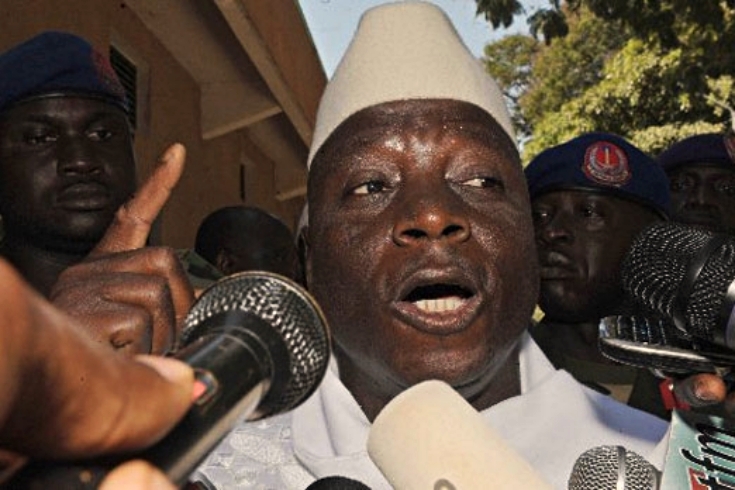Gambiaj.com – (BANJUL, The Gambia) – The ECOWAS decision to support The Gambia’s quest for a specialized tribunal has been hailed by NGOs as a significant milestone for the country’s justice system.
International human rights lawyer Reed Brody, a member of the International Commission of Jurists, emphasized the global and domestic anticipation for justice, particularly after the compelling public testimonies presented at The Gambia’s Truth, Reconciliation, and Reparations Commission (TRRC).
“After years of delay, this agreement could finally give Yahya Jammeh’s victims their day in court,” said Reed Brody of the International Commission of Jurists, who has worked with the victims and the Gambian authorities on plans for the court. “The tribunal should now be funded and established quickly before more survivors pass away,” he added.
This development marks a historic moment for The Gambia, as it is the first time ECOWAS is partnering with a member state to establish an internationalized tribunal within its region.
The TRRC demanded that Jammeh and 68 other former officials be prosecuted in 2021. It may be difficult for Teodoro Obiang, the president of Equatorial Guinea, to “protect” Jammeh from prosecution, as he once promised, now that the new ECOWAS-backed court will be able to enlist the help of ECOWAS member states like Ghana, Nigeria, and Senegal, whose citizens were among the 59 West African migrants killed by Jammeh’s “Junglers” hit squad in 2005.
“After the powerful public testimonies at the truth commission, which deeply impacted Gambians, there is strong expectation in Gambia and internationally that there will be justice,” said Brody. “It will be hard for Equatorial Guinea to refuse to turn over Yahya Jammeh to a court that represents the entire West African region.”
A Long-Awaited Decision
In July, the ECOWAS Parliament voted to issue an unfavorable opinion on The Gambia’s proposal to partner with the ECOWAS Commission for establishing the tribunal, citing concerns over the regional body’s involvement. However, five months later, the ECOWAS Heads of State came up with a different stance, approving The Gambia’s request.
“This is a great decision by ECOWAS. It highlights the regional body’s commitment to accountability and preventing serious human rights violations,” said Didier Gbery, head of office for the International Center for Transitional Justice (ICTJ) in The Gambia.
He further praised The Gambia government, stating, “Their efforts should be recognized. With the necessary political will and support, the legacy of the past can be addressed while building strong structures and principles to promote human rights.”
Victim Advocacy and Regional Collaboration
The Alliance of Victim-Led Organizations in The Gambia (AVLO) played a pivotal role in this achievement, submitting a petition signed by over 300 victims and civil society organizations from 22 countries to ECOWAS.
Priscilla Yagu Ciesay, Esq., AVLO’s representative on the Gambia-ECOWAS Joint Task Force, called the decision a “pivotal moment” in The Gambia’s journey toward justice and accountability after decades of human rights abuses under Yahya Jammeh’s regime.
This decision, though not without challenges, represents a significant step in addressing atrocities committed during Jammeh’s rule from 1994 to 2017.
“The proposed hybrid tribunal – an internationalized judicial body that may hold hearings in other West African nations – offers a pragmatic solution to the difficulties of prosecuting human rights violations within The Gambia.” said Ciesay.
Ms. Ciesay also emphasized that such a tribunal would not only enhance legal accountability but strengthen regional collaboration in combating impunity for serious crimes.
“The ECOWAS decision embodies both hope and responsibility. It is an opportunity to reaffirm regional commitments to justice and accountability while addressing the historical injustices suffered by victims of Jammeh’s regime.”










